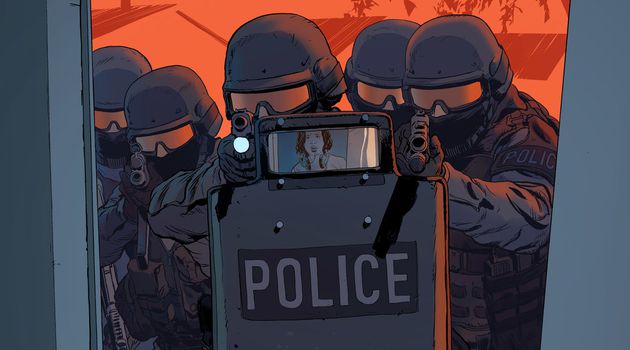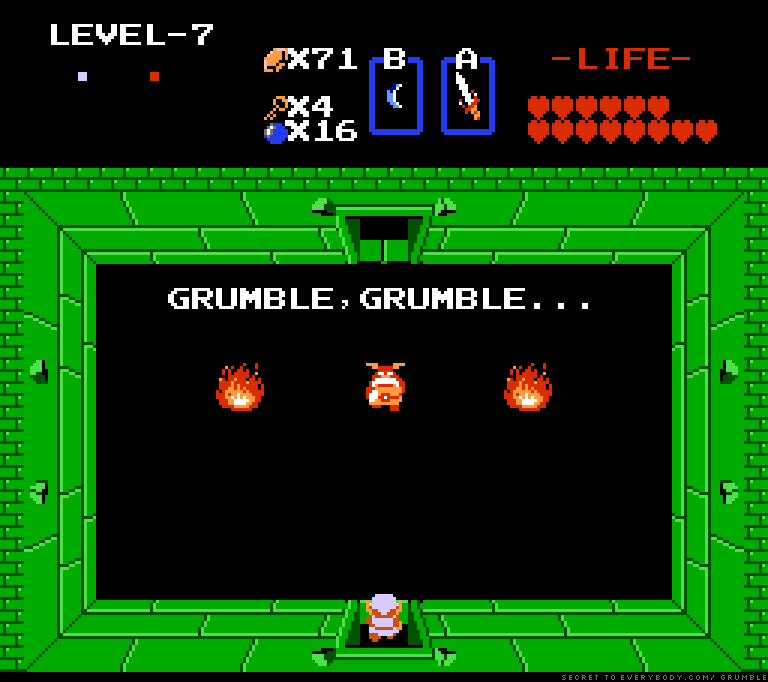Back in 2013, Maddie Myers wrote about what it costs to be a “real” gamer, and when she referenced it recently, we couldn’t help but look around at our own costs of the work we do for this unfunded, volunteer-only site. The harsh reality of games criticism—or, as Myers puts it, being a “hardcore gamer,” is that the requirements are steep:
“Games have a serious accessibility problem. Usually when people complain about games not being accessible, they are talking about the culture, as well as the difficulty and in-jokes inherent in videogames. I think a big part of gamer culture is about class barriers as well….[if you] want to be considered “hardcore,” then you’re going to have to work a lot harder to prove your credentials socially than a rich gamer who can easily fill their living room with expensive gadgets.”
Similarly, the costs of being a critic, scholar, or freelance member of enthusiast press can be an obstacle to entry. The burden of cost to do the work that we do (on top of our regular academic and industry jobs) is a very important and pressing issue, one that dictates which games we can investigate, as well as how. What do we do when someone’s console dies, when we need better audio quality, or we want to start doing Let’s Plays or streaming on a regular basis? Not to mention the regular costs we incur: internet connections (upgraded, if we want to stream or play much online), games, subscription fees, software for site creation needs. The money’s got to come from somewhere, right?
As most of us are games scholars, these purchases can sometimes be partially reimbursed or written off on our taxes; the same goes for our industry professional. But those are after-the-fact repayments, and so we still have to have the money up front, money to lay out for consoles, accessories, games, internet connections, software, and more. Frankly, sometimes we just don’t have it; it’s a choice between traveling to a conference to present a paper, perhaps, or buying a newer computer just for better processing power when the one you already have is only sufficient for writing and grading papers. In that case, the conference might win out, because after all, there are still certain expectations for scholars in traditional mediums and arenas, and maintaining a side project highlighting other forms of criticism cannot always be privileged, even if it’s sometimes what we’d rather be doing.
And when it comes to the pedagogical work that we do we find ourselves in an even more precarious situation. Consoles are not traditional classroom equipment in the humanities and being the indigent cousin of the university means that the funds are simply not available for our home departments to purchase this equipment for us. At that point the burden falls on the teacher who wants to teach (with) games in the first place. Some of us lug consoles and boxes of games from home to set up in the classroom while tenured or tenure track faculty members might be able to secure minimal grant funding for such an endeavor. And even then space is at a premium. We find ourselves wheeling carts from locked rooms to classrooms slowly and carefully so as not to risk damaging the precious cargo. And when that equipment reaches the end of its life cycle we find ourselves back where we were before.
 The potential impact on future games scholars here is catastrophic. How can we tell students their critical contributions are on equal footing with literature, film, history, and gender studies, while at the same time not affording the equipment they need to conduct those studies? Books and films can be checked out of the library, but games and gaming consoles are not yet included in facilities at most institutions. When teaching games narratives or games analysis, classrooms often look like this: a group of students cluster around one console or computer, watching one player, maybe talking about the game and maybe not; often, they have no chance to physically interact on their own. And this does not take into account the cost of the game software itself. Instructors will often find themselves limited to teaching and talking about games that they themselves already own (thus limiting the opportunities for further exploration within and outside of genres). Instructors who want to avoid this scenario must instead assign games that are easily accessible from a variety of devices, which usually means older titles or less robust games, and with the ESA moving to block access to archived titles and abandonware, those options are shrinking. The bottom line is that students then face similar choices, selecting between traditionally necessary learning equipment, such as textbooks, because it’s difficult yet for many to see games as texts, or consoles on equal footing with computers, and when students do not have the necessary access to games, they lose the opportunity to become valuable voices in the spheres of research and criticism.
The potential impact on future games scholars here is catastrophic. How can we tell students their critical contributions are on equal footing with literature, film, history, and gender studies, while at the same time not affording the equipment they need to conduct those studies? Books and films can be checked out of the library, but games and gaming consoles are not yet included in facilities at most institutions. When teaching games narratives or games analysis, classrooms often look like this: a group of students cluster around one console or computer, watching one player, maybe talking about the game and maybe not; often, they have no chance to physically interact on their own. And this does not take into account the cost of the game software itself. Instructors will often find themselves limited to teaching and talking about games that they themselves already own (thus limiting the opportunities for further exploration within and outside of genres). Instructors who want to avoid this scenario must instead assign games that are easily accessible from a variety of devices, which usually means older titles or less robust games, and with the ESA moving to block access to archived titles and abandonware, those options are shrinking. The bottom line is that students then face similar choices, selecting between traditionally necessary learning equipment, such as textbooks, because it’s difficult yet for many to see games as texts, or consoles on equal footing with computers, and when students do not have the necessary access to games, they lose the opportunity to become valuable voices in the spheres of research and criticism.
 When we began to think about this post we surveyed our own staff at NYMG to see what equipment they had and used in their research and gaming for the site. We did this not so much so that we could see what they did have, but where the gaps in our coverage are. Only one of us has everything that might be deemed “necessary” for the work we do; others specialized according to interests and available funds. Most of us are strong either on the PC or the console side with only one of us owning all of the current/next gen and last gen systems and PCs capable of running games at an acceptable rate. And several of us rent games from Redbox, local stores, or subscription services in order to have access to new games without having to shell out 60-70 dollars at launch. Most of us are also limited to the mediocre quality of video quality provided by the current gen systems (and streaming and recording software built into game sales platforms) if we want to stream to Twitch or create Let’s Plays because the necessary hardware and additional software is simply too cost prohibitive. We also thought that we would give a bit of our individual access narratives because we are at different ends of the spectrum, Sam as tenured faculty member and Alisha as an underpaid graduate student (past and future; right now, an underpaid lecturer).
When we began to think about this post we surveyed our own staff at NYMG to see what equipment they had and used in their research and gaming for the site. We did this not so much so that we could see what they did have, but where the gaps in our coverage are. Only one of us has everything that might be deemed “necessary” for the work we do; others specialized according to interests and available funds. Most of us are strong either on the PC or the console side with only one of us owning all of the current/next gen and last gen systems and PCs capable of running games at an acceptable rate. And several of us rent games from Redbox, local stores, or subscription services in order to have access to new games without having to shell out 60-70 dollars at launch. Most of us are also limited to the mediocre quality of video quality provided by the current gen systems (and streaming and recording software built into game sales platforms) if we want to stream to Twitch or create Let’s Plays because the necessary hardware and additional software is simply too cost prohibitive. We also thought that we would give a bit of our individual access narratives because we are at different ends of the spectrum, Sam as tenured faculty member and Alisha as an underpaid graduate student (past and future; right now, an underpaid lecturer).
Sam: While I find myself in the privileged situation of often owning all of the current gen systems it is because games research is my primary area of academic research and I can write grants for funding to purchase said consoles. It also means that I have more expendable income to buy some equipment for myself (but not nearly as much as my more highly paid colleagues in the STEM discipline) to buy some small bits of equipment and to do what is necessary to maintain a project like Not Your Mama’s Gamer. But when you consider the costs of things like web hosting, recording equipment, business cards to share with the volunteer staff, t-shirts and video games that can be used to increase awareness about the site via contests and giveaways things get really expensive really quickly.
Attending cons and conferences is even more problematic. While attending these conventions and conferences is imperative for networking and researching purposes, academics are usually only reimbursed (currently at a yearly stipend that is less than the $1500 cost of an All Access Pass to GDC for me) if the attendee is actually presenting at the conference and not attending for networking and educational purposes.
Alisha: I still don’t have a PS4. I’d love to play Bloodborne, and I jealously watch streams, considering how I would engage the combat and story. I could sit on campus and use the department’s machine, but it’s just not the same, playing in a room that’s community property; the feeling of ownership and connection is diminished, and finding the time to play, around classes that use the equipment, and other members of the department who need it, is an added challenge, especially with a game like that.
I finally bought an Xbox One recently, after more than a year of waffling, considering, balancing finances. It wasn’t that I didn’t want to play Dead Rising 3—and write about it—it was that I had recently given birth to my second child, and I was living on grad student money from my teaching stipend while my husband went back to school to finish his degree. I especially wanted to play Destiny, and while I had an Xbox 360, everyone else I knew was buying it for the Xbox One, so it seemed a pointless purchase. I’ve missed out on a number of timely critical opportunities because of that, opportunities to explore the line between “good” and “evil,” and the effect point of view has on narrative, particular narratives of war, and I wish I’d been able to find some way to scrape together the funds. I wish too there wasn’t this now-now-now idea in gaming, that we all have to focus on the recent releases or the next big thing. I’ve been so grateful for the re-release of State of Decay not only because I love it, but because there was more I wanted to say, and even for a niche site, sometimes covering “old” games can feel fruitless. I’m grateful, too, to sites like Offworld, Kill Screen, and FemHype (among others) for expanding the richness and history of video game exploration. I feel like we’re moving to more expansion in the fandoms as a whole, but so much of the narrative is still concerned with what’s now and what’s next.
Lately I’ve been working on video content. I enjoy streaming, and working on Let’s Plays is a natural step beyond that, especially critical Let’s Plays. But because I’m not a PC gamer, I don’t have great computers. My main workstation is an ancient Mac Pro that was great for the time, but eight years later, huffs and chugs and protests when I turn on Photoshop or InDesign. To process video, I record on an old Dell or the ASUS my husband uses for school. My Linux netbook can’t handle anything, so I’ve temporarily borrowed a Macbook Pro from the university, where I move the videos for processing in iMovie. I can’t imagine the luxury of doing everything on one machine, or even two. Still, I do it; it takes time, and effort, but the end result feels like an accomplishment, even moreso sometimes than written analysis, maybe because I’ve been writing for so long that I’d do that anywhere, under any circumstances.
When I began freelancing in 2005, prior to returning to school, I had a few consoles and a small library of games. I was long on passion, but short on equipment, and I relied on my ability to read and analyze quickly to write about games with which I had limited experience. That was fine, though not optimal, for news blurbs and general press coverage, but I had to lay out money for new equipment to deepen my experience. I was lucky then in that I had a solid position and other income as well, but so many freelancers are working for minimal pay or even just the so-called privilege of a byline to build credits, scrambling to write quantity when they can (quality can be a luxury), and that’s just to get by. Forget buying extra devices, new games, or upgrading recording equipment.
Where Do We Go From Here?
 There’s not as much discussion as there should be about the privileges of access afforded to writers of major media outlets like IGN, where a central office, shared equipment, and games straight from the source give writers opportunities for engagement and experience others don’t often enjoy, but at the same time, the major sites focus on a narrower approach to games, churning out video walkthroughs and reviews, and deeper critical exploration is often the specialty of a single writer, if that. There are also those freelancers who come to the table from a position of wealth, individual or otherwise, and for them, the costs are no burden, as Myers pointed out in her piece. There’s been a lot of chatter recently on social media about the unspoken fact that many writers married well, and so don’t have to worry about access or pay; they do it for love. But that’s not a solution. It’s a perk some writers have. I’m not arguing that all things should be “fair” or games should be free, but moving games toward a more accessible plane is a worthy goal, and more, opening greater discussion around these issues is important.
There’s not as much discussion as there should be about the privileges of access afforded to writers of major media outlets like IGN, where a central office, shared equipment, and games straight from the source give writers opportunities for engagement and experience others don’t often enjoy, but at the same time, the major sites focus on a narrower approach to games, churning out video walkthroughs and reviews, and deeper critical exploration is often the specialty of a single writer, if that. There are also those freelancers who come to the table from a position of wealth, individual or otherwise, and for them, the costs are no burden, as Myers pointed out in her piece. There’s been a lot of chatter recently on social media about the unspoken fact that many writers married well, and so don’t have to worry about access or pay; they do it for love. But that’s not a solution. It’s a perk some writers have. I’m not arguing that all things should be “fair” or games should be free, but moving games toward a more accessible plane is a worthy goal, and more, opening greater discussion around these issues is important.
Is there a solution to these issues of access, privilege, and value attributed to scholarly and critical endeavors? No, no easy solution; we can lobby the ESA to reverse their decision that found that restoring functionality to games no longer supported by their publishers is akin to hacking and piracy, and we can write grants and seek funding for educators, scrabbling for limited funds already spread too thin, but these are not solutions. They’re only steps. Perhaps more useful would be to keep moving these discussions into the light, so they’re no longer relegated to whispered scraps of gossip about who has what, but instead meaningful discussions about the high cost of gaming and access.
It might be important, too, to take a hard look at games writing in a broader sense. In the post-GamerGate era, sure, people debate changes to the gaming press and related endeavors, but perhaps what’s more important to consider is how we want that industry to look. Do we want the same news, reviews, and ideas spread across multiple sites, running on the same day, or do we want to value a wider variety of content, accepting that every writer may not write about the same games, or in the same way, and find merit in that diversity? Currently, there seems to be some stigma associated with the lack of expected coverage, and along with the increased demand for video, the burden on the freelance writer, the scholar, and the armchair critic is elevated to impossible levels. Are we driving away potential content creators with audience expectations and a subsequent lack of material support, and are we content knowing that?




